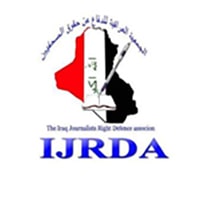Dr. Kazem Gharibabadi – Deputy for International Affairs of the Judicial System of I.R. of Iran and Secretary of the High Council for Human Rights
In the name of Allah, the Most Gracious and the Most Merciful
Human rights might be one or the most important invention by the international community or modern society. It is, noteworthy, a newly-appeared concept for, merely, the international community. Delving into the history of Islam and divine religions in general, one can deduce that the concept of human rights is deeply rooted in religious and particularly Islamic principles and teachings. In other words, several Islam-related precepts are the milestones of human rights. They are traceable in religious and Islamic teachings. However, I consider this invention which mainly arose in the international community after World War 2 a holy incident, because the concept of human rights itself is a holy phenomenon given the indispensable need for human dignity to assure a set of immutable rights.
As an Islamic country, we, principally, believe in the need to promote human rights for all humans, not just in our country but for everyone in the international arena.
A key point to consider is that the Islamic Republic of Iran is a fervent defender and supporter of human rights, standing, steadfastly, against their violation both on the domestic and international scene. One of the main issues, everyone needs to be attentive to, is the politicization of this holy phenomenon.
One can regret the fact that the concept of human rights is misused, turning to be a tool aimed at serving the interests and goals of some parties. Some of them claim to be the flag bearers of human rights, portraying themselves as defenders, while they authorize themselves to abuse others’ rights. Is not that behavior a double standard?
It is unacceptable for a country to pretend to be the torch holder of human rights. Neither we do. Hence, every country should always strive for promoting human rights instead of resorting to politicization, double standards and discriminative approaches, considered to be the major drawbacks for human rights.
Nowadays, we are witnessing malicious human rights-related campaigns conducted by certain groups targeting certain countries. Special reporters on human rights are dispatched here and there, along with the ratification on biased resolutions, whereas many worse cases and violations are neglected in other parts of the world. To this end, it is worth mentioning that egotistical countries are deliberately being reluctant towards such blatant violation cases.
To wit, while countries in Western Asia or the Middle East are facing immense challenges and passing through critical conditions, namely; militarism, presence of foreign troops, non-respect for countries’ sovereignty and territorial integrity, life-threatening conditions for women and children, no efforts are being exerted in their defense with a view to countering these threats. It is regrettable that human rights-related resolutions are adopted with political motives to target certain societies. I genuinely believe that neutralizing this human-oriented sphere and surpassing politicization would generate major gains for humanity.
Human rights are facing immense challenges, at the top of which is the polarization, as politicized approaches hamper us to overcome the difficulties and find practical solutions. I mention among other challenges, the scourge of terrorism. Killing innocent people is a violation of the most basic right of a human being which is the right to live. How did it come about that a country like Iran, which is a victim of bloodshed and terrorism as seventeen thousand civilians became martyrs in terrorist attacks (referring to terrorist attacks perpetrated by MKO in the 1980s) is portrayed as a violator of human rights? Not to mention, in this vein, the classification of certain countries, which are supporting terrorist groups, as human rights advocators!
Obviously, Iran is not the only country that is threatened by terrorist attacks and indiscriminate violence. A range of countries are challenged by such circumstances. I oppose, in the strongest terms, any approach that may differentiate between terrorist groups. A terrorist act is evil, irrespective of its origin or motives. We should pool efforts and tighten the ranks to fight all kinds of terrorism worldwide.
The Islamic Republic of Iran has, repeatedly, expressed its full determination and unwavering commitment to fight against this growing scourge domestically and regionally. It is prominent that we (as Iranians) have made huge efforts and invested heavily in order to eradicate the scourge of terrorism, get rid of terrorist groups and support international and regional efforts aimed at establishing peace and restoring stability. However, all this mobilization is, deliberately, neglected at human rights discussions and forums.
The other obstacles facing human rights are unilateral sanctions and coercive measures. For the time being, thirty five-plus countries are targeted by such forced sanctions. Unilateral sanctions are against the essence of the concept of human rights, human rights-related resolutions and UN charters in this area.
The situation is getting worse compared to a few years ago. As such, Human Rights Council appointed, based on Iran initiative, endorsed by some Non-Aligned countries, a UCM (unilateral coercive measures) special rapporteur. Another one has been appointed as well. He draws reports of high value. Once you take a look at them, it is precisely cited that unilateral sanctions are in violation of human rights-related resolutions and UN charters in this area, preventing humans from accessing their most basic rights.
The double standards approach is highly manifested by those countries and entities that boast human rights in certain countries, while targeting others by unilateral sanctions, depriving their peoples of their basic rights and turning a blind eye to their sufferings, holding their tongue.
The violation of human political and civil rights may affect a few individuals, having a range of issues in some regards, whilst the unilateral and coercive sanctions targeting certain societies are of catastrophic repercussions on the vulnerable masses. The violations of basic human rights resulting from the forced, unilateral and coercive sanctions imposed on targeted societies are much wider and deeper in effect compared to the deprivation of human political and civil rights of some individuals, which some countries focus on.
This is also a point that unfortunately is deliberately neglected and is directly related to various human rights. Sanctions violate various rights of individuals, such as the right to education, health, food and even the right to life. When we are talking about protecting the rights of vulnerable groups such as children and women or people with disabilities, But how is it when these vulnerable people lose their rights due to lack of access to proper living standards and due to lack of access to medicine and medical equipment or proper food or suffer from many problems or lose their lives. These are not considered human rights issues? Naturally, these issues are directly related to the human rights of individuals, and I think there should be special notice to sanctions issues. Of course, this basic campaign has been formed in the international arena for several years, and I think there is almost a consensus on the illegality and illegitimacy of unilateral sanctions in the international arena.
Another issue is organized crime. Terrorism is one of them. There are various other categories such as drugs and other discussions. These are still dealing with the rights of the people, and that in itself is one of the challenges. A country like the Islamic Republic of Iran actually faces all kinds of challenges. If we want to defend the rights of people around the world, we must not turn a blind eye to human rights challenges. While adopting positive policies, both at the national and regional levels, as well as at the international level, to protect and promote human rights, we must naturally have objective and practical plans to address human rights challenges, which are necessary challenges that are not national.
There are challenges that have both regional and international dimensions, which, if be addressed, will benefit the international community and the unity of individuals in different parts of the world. Another point that we really need to pay attention to is that when we talk about human rights, what has been highlighted so far through human rights mechanisms is political and civil rights. We are not against this. That is, civil-political rights are naturally part of human rights and part of the rights of individuals. We have the International Covenant on Civil and Political Rights, but as you know, this is a kind of first-generation law. We have the rights of the second generation, which are economic, social and cultural rights. There is deliberate neglect of this. If you discuss socio-economic and cultural economic rights, developed countries have a kind of responsibility towards developing and less developed countries in this regard. If, in fact, you are raising the issue of sanctions, then you have the right to develop that country. This is a point to note. Developed countries have the primary responsibility.
That is why, unfortunately, such second-generation rights are deliberately neglected. This is while we have passed from the second generation many years ago in the global arena to the third generation of human rights, which is the right of solidarity and Rights such as the right to peace, liberation from war, environmental rights. These are rights that other people do not enjoy. That means you can not say people or even a small group of people. Rather, a large number of people in a country, a group of countries, enjoy these rights. What have we done to realize these rights of the third generation? What practical steps have the international community taken? We have the next generation. In fact, human rights are constantly evolving. Well, these are important issues. Unfortunately, human rights mechanisms and the international community are still stuck in the very first generation of human rights.
We should definitely pay attention to those rights and pay special attention to civil-political rights. But this should not be a reason for us not to pay attention to other human rights. We must pay special attention to other generations of human rights. We have the Covenant on Economic, Social and Cultural Rights, as well as numerous other human rights treaties and conventions, as well as other international treaties in various fields that affect the human rights of individuals. It is also a key and fundamental point that if we want to both protect and promote the human rights of individuals around the world, we must also pay special attention to these forgotten dimensions of human rights. The last point I have to make is that we must take collective action if we are determined to protect and promote human rights. I have several suggestions in this regard and I believe that if all countries follow these few principles that I mention, we will see progress in the protection and promotion of human rights in all countries.
The first point is that we must take human rights out of the political and selective situation If human rights are recognized in both national and international regulations. If the accepted human rights are violated in accordance with the obligations accepted by the countries, this violation will not be accepted. We should not have a selective approach here, for example, highlighting human rights violations in a country, even if it is a small case, but turning a blind eye to the explicitly human rights violations in a country that is our ally. So the first point is that we really need to have a neutral and non-political view and pay attention to the protection and promotion of human rights. The second point is that we must have a cooperative approach. Human rights are not an arena of differences and wars and conflicts. If we want to protect and promote human rights, we must interact and cooperate with each other and talk. It is only through cooperation, dialogue and interaction that we can help support and promote human rights in all parts of the world. Otherwise, in my opinion, human rights are the victim in this regard. These are the points that I offered to you in the current situation. Thank you.









